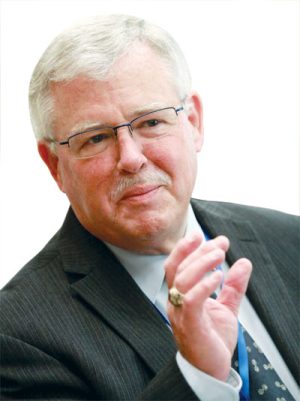Last weekend’s U.S.-ASEAN Special Summit ended with the usual round of handshakes, backslapping and a watered-down joint statement, which again failed to name countries of concern, China and Russia.
Carl Thayer, Emeritus Professor at the University of New South Wales at the Australian Defence Force Academy in Canberra, spoke with The Diplomat’s Luke Hunt about the summit and Vietnam, which is in an awkward position due to its reliance on Russian military hardware.
He says efforts to maintain a “free and open Indo-Pacific” have been complicated by the Southeast Asian nations and their desire to be seen at the center of the framework, despite their growing and at times intractable differences.
“When you examine them closely… the ways and means though don’t seem to quite fit,” he said, adding that ASEAN as a bloc had skirted Washington’s efforts for a harder line on Russia over its invasion of Ukraine.
“They’re all over the place, it’s like a shotgun and of one those pellets is going to hit and enhance ASEAN capacity but nothing is down with deadlines and firm commitments,” Thayer added.
There are also issues with raising U.S.-ASEAN relations to the level of a Comprehensive Strategic Partnership – alongside China and Australia – particularly within a multilateral environment that includes nations like Myanmar, which dominated the summit’s first day, and old rivalries with Vietnam.

































